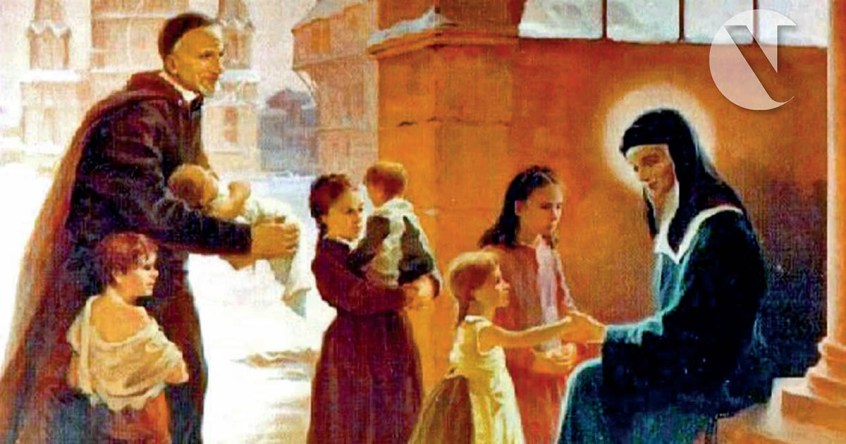
Organize. The year 1617 is for Vincent de Paul and for us an indication of what it means to say “I am Vincent.” The unnamed author of this reflection at our partner site, We are Vincentians, tells us “…nothing is acquired but what is given, charity is a gift of God.” He (or she?) continues:
The double experience of Gannes and the mission of Folleville will lead Vincent de Paul to found the Congregation of the Mission (1625), to organize the missions, the ordination exercises (1628), the Association of Priests of the Conference (1633), seminaries (1641) to implement the decrees of the Council of Trent, the reform of the clergy and the episcopate. Solidarity and “subsidiarity” between the members of the community and the church and the interdependence of ministries and works will be a demand for it.
The experience of the sermon of Chatillon (the great Vincentian works were born of an ardent discourse, Atonio Rédier has pointed out) and the experience of an ill-organized charity will lead Vincent de Paul to found the Ladies of Charity (1617) and The Company of the Daughters of Charity (1633).
With capable and insightful women, he will conceive and
… organize the much needed and urgent work of abandoned children. From 1639 to 1660 will launch a campaign of aid and will guide the charitable action in the provinces plundered and devastated by the war. All these creations will be expression and proof of Vincent’s deep awareness. This awareness still reminds us of the great concern of this organizer of charity: to organize society according to the poor and to help them by all means to escape their poverty. The interdependence, the interplay, between the members of society and the mystical body demand solidarity with others. The incisive and demanding Vincentian formulas remind us of the radicalism of the evangelical teachings: “God does not bear union with him, if he tolerates disunity with his members.” Unity and love for one’s neighbor make union with God: “If we have love, we must manifest it by leading men to love God and neighbor, to love our neighbor for God and God for our neighbor.” “We must unite ourselves to charity to unite ourselves to God through Jesus Christ.”
From these two revelations Vincent de Paul will speak above all of God through the “use of his being.” He will work all day and part of the night to respond in all circumstances to the demands of the “kingdom of God,” which is always manifested for the benefit of the poor.
Without words, Vincent introduces us to the mystery of human love and silently confesses that the poor reveal the truth of man. In him we discover how a “work” is always in the convergence where a movement of human dynamism, a doctrine, an ingenious and meticulous organization of people and gifts is organized.
When we organize people and gifts in an ingenious and meticulous way we can say I am Vincent.
Excerpted and translated from “El descubrimiento de los pobres II.”







Vincent wrote… the poor have “suffered a great deal, more through a lack of organized assistance than from lack of charitable persons.”[xvii]
Vincent de Paul Conferences, Correspondence, and Documents (CCD), 14 vols. (New York: New City Press, 2003),13b:8.